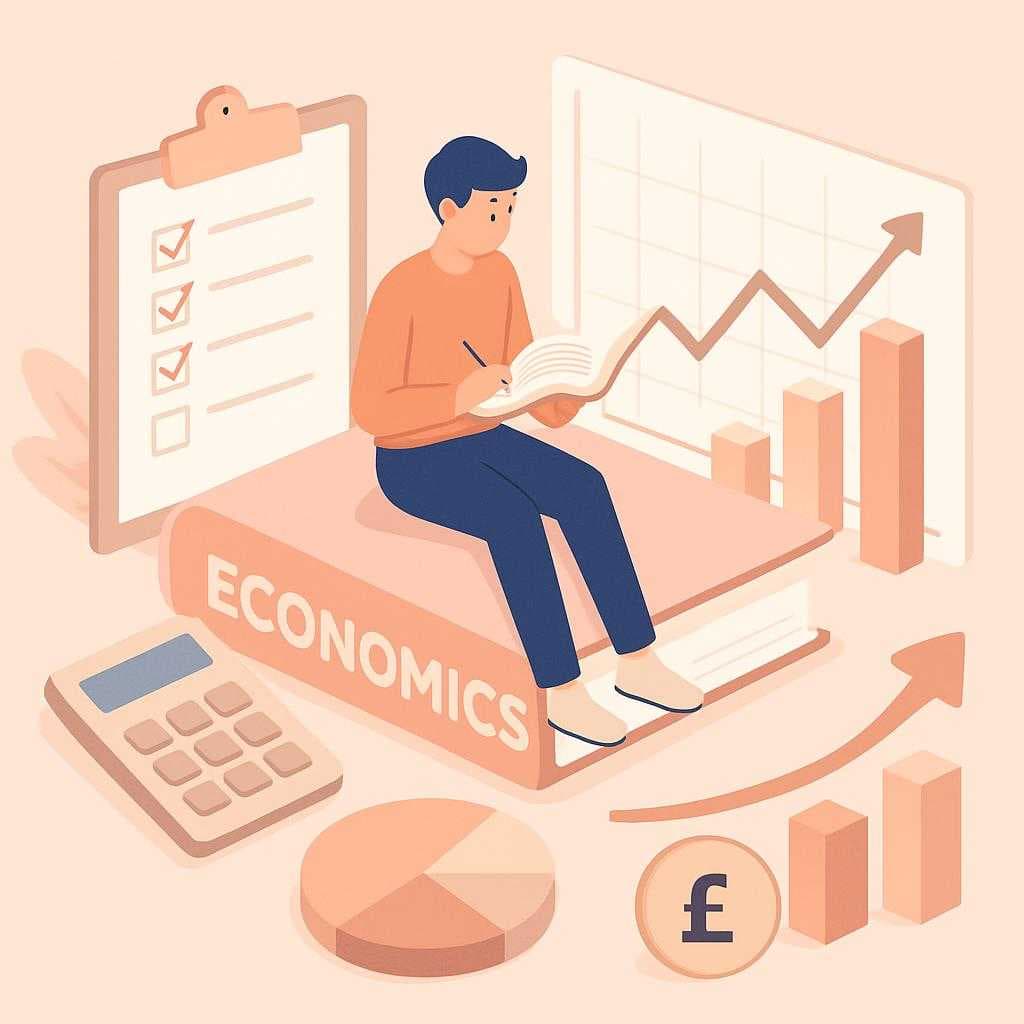Acing A-Level Economics: Navigating the Exam Boards with Precision
Summary
Unlock your full potential in A-Level Economics by understanding the nuances of UK exam boards. This guide offers insightful tips and strategies tailored to the specific demands of AQA, Edexcel, and OCR, helping you prepare effectively and excel in your exams.
As an A-Level Economics student in the UK, mastering your syllabus is only part of the battle. A critical, yet often overlooked aspect of exam success lies in understanding the specific requirements and nuances of your exam board. With AQA, Edexcel, and OCR each presenting unique challenges and expectations, tailoring your study approach can significantly enhance your performance.
Understanding Exam Board Nuances
AQA: Known for its emphasis on real-world application, AQA expects students to integrate economic theories with current events. To excel, regularly read economic news and practice applying theoretical concepts to contemporary issues. Engage with past papers to familiarize yourself with AQA's question style and focus on developing your critical thinking skills.
Edexcel: This board often places a strong focus on data response questions and economic modelling. To succeed, hone your ability to interpret graphs and tables quickly. Practice structuring your answers concisely, ensuring you address each part of the question. Regularly revisiting quantitative skills will be beneficial, as Edexcel often assesses these in detail.
OCR: OCR exams are known for their comprehensive and analytical nature, often requiring students to evaluate economic theories critically. To prepare, write detailed essay plans and practice constructing balanced arguments. Familiarize yourself with OCR's mark schemes to understand how examiners award marks for analysis and evaluation.
Effective Revision Techniques
-
Past Papers: No matter your exam board, past papers are invaluable. They not only expose you to the format and style of questions but also highlight recurring themes and topics. Allocate time for timed practice sessions to build confidence and improve your exam technique.
-
Mind Maps and Flashcards: These tools are excellent for summarizing complex theories and models. Create flashcards for key terms and mind maps for economic concepts to enhance your recall and understanding.
-
Discussion Groups: Engage with peers in study groups to discuss and debate economic issues. This can deepen your understanding and expose you to different perspectives.
-
Feedback: Seek feedback on practice essays and data response questions from teachers. Constructive criticism can pinpoint areas for improvement and help refine your exam technique.
By aligning your study strategy with the specific demands of your exam board, you can approach your A-Level Economics exams with confidence and precision. Remember, success in economics is not just about memorizing theories, but also about applying them effectively to real-world scenarios. Stay informed, practice diligently, and you'll be well-equipped to ace your exams.
